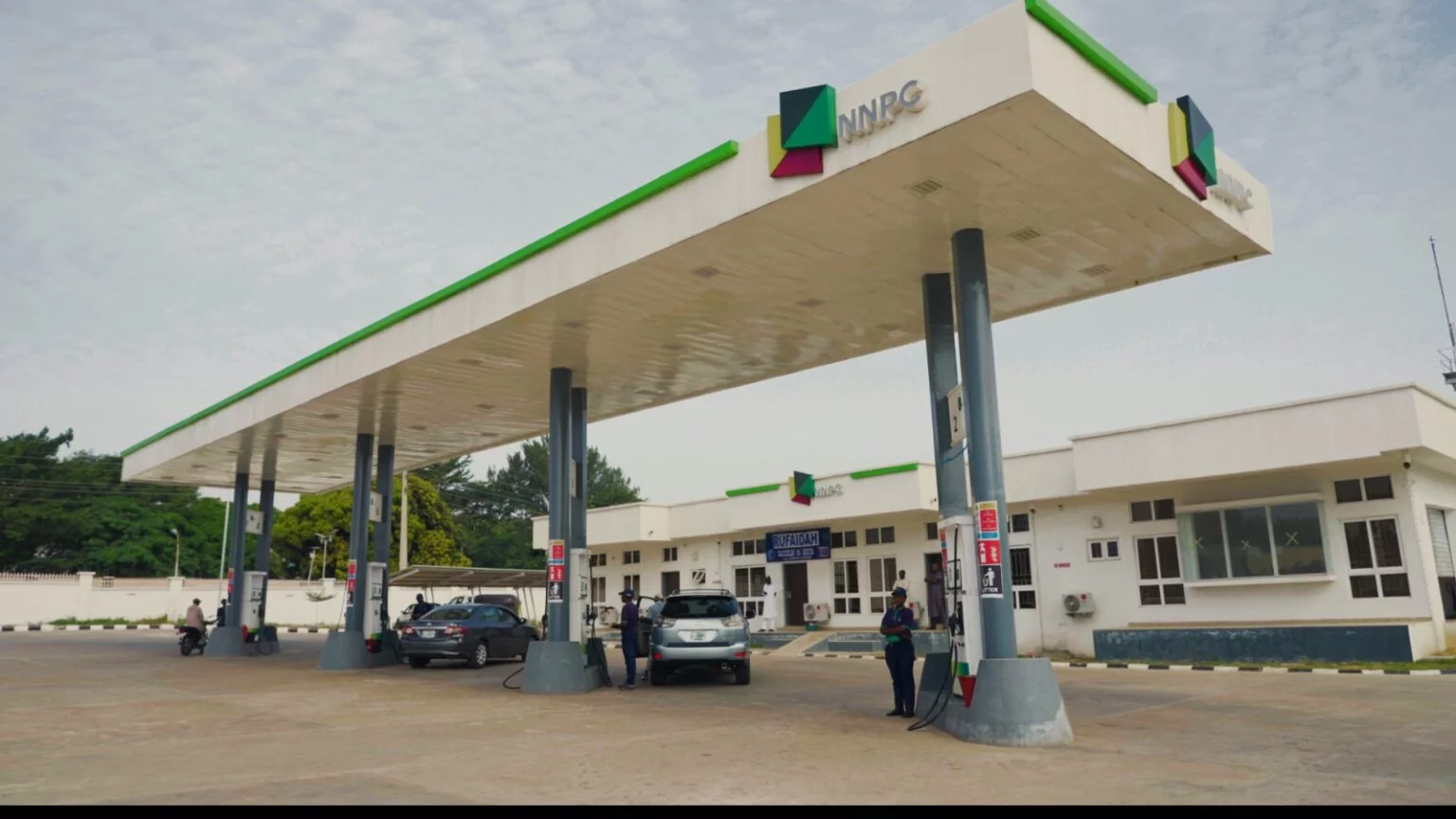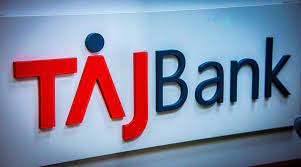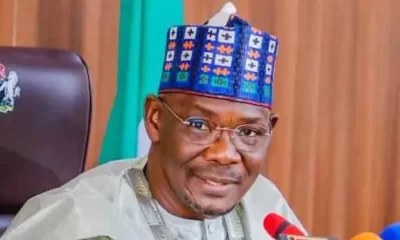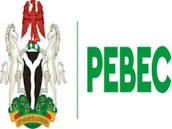FEATURES
Renewable Energy as Catalyst to Solving Nigeria’s Energy Crisis

Like crude oil, Nigeria has abundant renewable energy potential. Renewable energy is derived from natural sources that are replenished at a higher rate than they are consumed.
Major sources of renewable energy are solar, hydro, wind, biomass and geothermal.
Nigeria’s power sector is facing crisis with a large percentage of the population lacking access to electricity while those who have experience epileptic supply.
Experts say given the challenges in the nation’s power industry, renewable energy has the potential to help in solving the nation’s power deficiency.
They say there is abundant renewable energy which can be harvested to bridge the gap in our energy demand and supply.
The nation’s location in the tropics gives it all year round solar radiation and its long coastline provides potential for wind power generation.
In recent years, the Federal Government has taken steps to increase the share of renewable energy in the country’s energy mix.
In view of the degree of power crisis the Nigerian government has embarked on various steps to promote the use of renewable energy, targeting to generate 30 per cent of electricity from renewable sources by 2030.
In addition the Federal Government through its policies implemented and encouraged the development of renewable energy projects which include tax incentives and feed-in tariffs.
The Nigerian government has launched several initiatives to encourage the development of solar energy, including the establishment of a solar power plant in Katsina State, which has a capacity of 10 megawatts.
Similarly, the Federal Government in a bid to improve the nation’s power sector recently launched a project by the Rural Electrification Agency (REA) which aims to provide solar-powered electricity to five million Nigerians.
Energy experts say that Nigeria has a significant wind energy potential, particularly in the northern part of the country.
However, wind power development in the country is still at an early stage, with only a few small-scale wind projects in operation.
The Nigerian government is working to encourage the development of wind energy by providing incentives for investors.
Some schools of thought, however, say more was needed to be done to fully harness Nigeria’s renewable energy potential and meet the country’s energy needs.
Experts said one major challenge facing the adoption of renewable energy in Nigeria is the high cost of installation and maintenance.
With an average of 5.5 hours of sunshine per day throughout the country experts say solar energy is one of the most abundant renewable energy sources in Nigeria,
Experts added that long-term benefits of renewable energy, such as reduced dependence on fossil fuels and lower carbon emissions, make it a worthwhile investment.
Sterling Bank Plc and Stears Data in a joint report on Nigeria’s electricity crisis, advocated the adoption of renewable energy as a viable solution to complement domestic and commercial supply.
The report advocated the adoption of renewable energy as a viable solution to complement domestic and commercial supply.
It report showed that in spite of the privatisation of Nigeria’s electricity sector the country still has one of the lowest electrification coverage rates in the world.
The report said 43 per cent of Nigeria’s population has no access to grid electricity, an indication “that 85 million Nigerians are not connected to – and cannot receive electricity from – the Nigerian transmission grid.”
The federal government acknowledges the huge volume of renewable energy sources and promises to provide the enabling environment for their continued exploration and utilisation.
The Minister of Power, Abubakar Aliyu, said the country’s renewable energy and energy efficiency sector has continued to grow rapidly, heightening the need for a skilled workforce to support the sector.
Aliyu spoke at “Energise- First Career Fair for the Clean Energy Sector” held in Lagos in 2022.
According to him, with the push for cleaner sources of energy, renewable energy is one of the fastest-growing, high-technology sectors in the global economy.
He said the growth of the renewable energy sector had heightened the need for a skilled workforce that would help support the strengthening of power and energy access initiatives of the government, sector actors and partners.
The minister noted that renewable energy was one of the ways the government was providing electricity to Nigerians in the rural areas not connected to the national grid.
He said the government had been developing solar mini-grids and remained committed to achieving a carbon net-zero by 2060.
Also speaking at the event Mr Duke Benjamin, Head of Programme, (NESP), said the renewable energy sector was growing in the country and needed about 30,000 young Nigerians to fill the gap in the sector.
He spoke through Mr Olumide Fatoki, Head of Unit Sustainable Energy Access in NESP
Benjamin commended the efforts of the funding and implementation partners of the career fair, adding that it was the first step towards establishing a skill-matching collaboration platform for the clean energy sector.
A Deputy Director at Energy Commission of Nigeria and a member of the REEEA-A Steering Committee, Aminu Isa, at the event highlighted the importance of collaborations as a key driver of the expected growth in the energy sector.
“As an Alliance of associations within the Renewable Energy (RE) and Energy Efficiency (EE) sector, we are very much interested in this synergy.
“This is aimed at improving the quality and standards of RE and EE technologies while also strengthening capacity in terms of knowledge generation and skills distribution,” he said.
Renewable energy also has the potential unlock the potential in rural areas, according to Mr Salihijo Ahmad Managing Director, Rural Electrification Agency (REA).
He spoke at an investors’ matchmaking event for the Solar Power Naija Programme organised in partnership with the Power Africa Nigeria Power Sector Program (PA-NPSP, USAID)
According to him, the Solar Power Naija Programme was meant to be part of the Economic Sustainability Plan to achieve the roll out of five million new solar connections in off grid communities.
The programme, he said, was expected to generate an additional seven billion naira increase in tax revenues per annum and 10 million dollars in annual import substitution.
He said it would contribute to increasing local content in the off grid solar value chain and facilitate the growth of the local manufacturing as well as create 250,000 new jobs in the energy sector’ ‘he said.
Developing the Nigeria’s renewable energy to contribute more to national economic growth requires enormous resources which neither government nor the private sector can afford alone.
The two sectors pooling their resources remains the best option to achieve that target. (NAN)

NNPCL’s New Culture of Transparency, Discipline Strengthens Financial Performance
By Enam Obiosio
The Nigerian National Petroleum Company Limited (NNPCL) is recording stronger financial and operational outcomes as its new culture of transparency, accountability, and capital discipline continues to take hold.
This shift is being reinforced by the company’s decision to publish audited financial statements, hold earnings calls, and open its books to independent analysts.
One of the analysts who reviewed the 2024 results, former Chief Financial Officer and Chairman of M.E Consulting Limited, Mr. Victor Eromosele, provided an independent breakdown that is shaping public understanding of the company’s progress.
In a media chat, Mr. Eromosele explained that he converted the N45.1 trillion revenue and N5.4 trillion profit into dollars to ensure comparability given the recent movement in the naira.
“The first thing I did was to convert it to the United States dollars because we all know what has happened to the naira recently,” he said.
“If you look at it in dollars you would find out that the top line instead of N4.5 trillion is actually 31.1 billion dollars. The bottom line instead of N5.4 trillion is actually 3.7 billion dollars.”
His analysis placed NNPCL beside global peers such as Chevron and ENI. While Chevron posted 193 billion dollars and ENI 198.7 billion dollars in revenue, NNPCL’s strength emerged in its efficiency.
“If you compared the bottom line with that of the top line which is the margin, you would find a situation where NNPCL for example is at 11.8 percent, while ENI is at six percent and Chevron is at nine percent,” he noted.
“Looking at the figures, it shows NNPCL did better.”
He also highlighted 56 percent asset growth and a 28 percent return on capital employed, up from 23 percent the previous year; metrics he described as healthy and consistent with investment grade performance.
These indicators reflect the broader reforms under the Petroleum Industry Act, including the shift from a government revenue collector to a commercially structured energy company that pays taxes, royalties, and dividends clearly and independently.
The company now publishes IFRS-compliant audited accounts, reinforcing visibility and external validation.
According to Mr. Eromosele, once the numbers are assessed on a stable global baseline, “one can say NNPCL actually did well.”
NNPCL continues to strengthen transparency, operational discipline, and global competitiveness in line with its long-term transformation agenda.
FEATURES
Victor Okoli: The Young Nigerian Tech Founder Building Digital Bridge Between Africa and America

Victor Chukwunonso Okoli, founder of Vnox Technology Inc. (USA) and Vnox Limited (Nigeria), is steadily emerging as one of the most promising new voices in global travel-tech. His mission is clear: bridge the technological gap between Africa and the United States, redefine global travel systems, and empower a new generation of skilled youths through innovation-driven opportunities.
In a statement issued in Onitsha, Anambra State, by Vnox Limited (Nigeria), the company emphasized Okoli’s growing influence as a Nigerian international graduate student contributing meaningfully to U.
S. innovation. His rising travel-technology platform, FlyVnox, currently valued at an estimated $1.7 million, is positioning itself as a competitive player in the global travel ecosystem.Okoli explained that Vnox Technology was founded to “train, empower more youths, create global employment opportunities, and drive business growth through our coming B2B portal inside the FlyVnox app.” The platform’s new B2B system aims to support travel agencies, entrepreneurs, and businesses across Africa and the diaspora—giving them access to modern tools, previously inaccessible technologies, and global opportunities.
Several young men and women are already employed under the expanding Vnox group, with more expected to join as the brand grows internationally.
Born and raised in Eastern Nigeria, Okoli’s early life exposed him to the realities and frustrations faced by international travelers and diaspora communities. After moving to the United States for graduate studies, he transformed those experiences into a bold technological vision—building systems that connect continents and create seamless mobility for users worldwide.
At the center of that vision is the FlyVnox app, a modern airline-ticketing platform built with global users in mind. Combining American engineering precision with African mobility realities, FlyVnox offers international flight search, multi-currency support, secure payments, transparent pricing, and a clean, intuitive interface.
Beyond FlyVnox, Okoli has built a growing tech ecosystem under Vnox Technology Inc., which oversees several innovative ventures, including: Vnox TravelTech Solutions LLC (FlyVnox App), VnoxPay (fintech), VnoxShop / Zyrlia (e-commerce)
VnoxID / Nexora (digital identity and smart business card solutions)
Vnox Limited (Nigeria) anchors African operations, media services, and talent development—ensuring the brand remains rooted in its home continent even as it grows globally.
Okoli’s work has broad significance for both Africa and the United States. He represents the powerful impact of immigrant entrepreneurship on global competitiveness—creating new jobs, driving innovation, strengthening U.S.–Africa commercial ties, and contributing to the development of practical, scalable technologies.
The statement concludes that Vnox Technology is a brand to watch. As FlyVnox gains international traction and the Vnox group expands its footprint, Victor Okoli stands as a symbol of a rising generation: African-born, globally minded, and building technologies that connect and serve the world.
FEATURES
Governor Sule: Driving Economic Reforms from Policy to People in Nasarawa State

From Leo Zwanke, Lafia
In Nigeria’s evolving governance, few leaders have gained as much recognition for reform-driven innovation at the subnational level as Governor Abdullahi Sule of Nasarawa State. From fiscal prudence to industrialisation, agricultural transformation to human capital development, the engineer-turned-technocrat has steadily positioned Nasarawa as a model for how subnational governments can translate macroeconomic reforms into tangible benefits for their citizens.
At the recent Nigeria Development Update (NDU), organised by the World Bank in Abuja with the theme “From Policy to People: Bringing the Reform Gains Home,” Governor Sule was a panellist alongside national and international development leaders.
He was introduced as a governor whose economic insight and governance style exemplify how reform implementation at the grassroots can sustain the federal government’s policy direction.“Governor Sule represents the bridge between Nigeria’s macroeconomic reforms and how these policies are domesticated at the state level,” said Shubham Chaudhuri, the World Bank Country Director for Nigeria. “He’s not only talking about reforms; he is implementing them in ways that citizens can feel.”
Before venturing into politics, Abdullahi Sule built a career in engineering, energy, and industry—serving as Managing Director of Dangote Sugar Refinery and leading other private sector initiatives. His private sector exposure, as many observers note, shaped his pragmatic approach to governance.
“The Governor came into office with a technocrat’s mind,” noted Dr. Ahmed Mohammed, an economist and lecturer at Nasarawa State University, Keffi. “He understands that policy documents mean little unless they are converted into livelihood gains.”
That philosophy—bridging policy with the people—is evident across his governance initiatives, aligning seamlessly with the World Bank’s recent development theme.
Agriculture remains Nasarawa’s economic backbone, engaging over 70 percent of its population. Governor Sule’s administration has revitalised the sector through targeted mechanisation, input distribution, and market linkage interventions.
Through partnerships with the African Development Bank (AfDB) and the World Bank’s Agro-Climatic Resilience in Semi-Arid Landscapes (ACReSAL) project, the state has distributed modern tractors, improved seedlings, and irrigation facilities to thousands of farmers.
In Yamaltu Deba, a community in Awe Local Government Area, farmer Mallam Abdullahi Umar explained how the tractorisation scheme has transformed their operations.
“Before, we used hoes and cutlasses. It took us two weeks to plough a hectare. Now, with tractors, we do that in one day. Our yields have doubled,” he said proudly.
Governor Sule himself often emphasises the need for “commercially viable farming” and “agriculture as a business, not a subsistence activity.” His administration has created a framework for farmer clusters, linking smallholder producers with large-scale processors, thereby addressing one of Nigeria’s major agricultural bottlenecks—post-harvest loss.
These interventions are not isolated. They feed into the national agenda of improving food security, generating rural employment, and reducing inflation. In Nasarawa, farmers are reporting higher incomes and expanded market access, a reflection of the governor’s commitment to inclusive growth.
Often called the “Home of Solid Minerals,” Nasarawa State is richly endowed with tin, lithium, barite, and other minerals. Yet, for decades, the sector remained largely informal, with little contribution to state revenue.
Governor Sule has changed that narrative through policy reforms that encourage private sector participation and responsible mining. Under his administration, Nasarawa has developed a solid minerals development policy, created a one-stop investment office, and attracted both domestic and foreign investors.
Earlier this year, the governor led an investment mission to India, where he met with industrial leaders and promoted opportunities in Nasarawa’s mining, energy, and agricultural value chains. The result was a flurry of interest from companies seeking to establish operations in the state.
“Governor Sule’s investment drives are opening Nasarawa to the world,” said Mr. Nabil Saleh, a consultant in mining development. “For the first time, there’s a clear structure and transparency around mining licences, community agreements, and environmental safeguards.”
In Karu and Keffi, local youths who previously relied on artisanal mining now participate in formalised mining cooperatives supported by state-led training programmes. This not only ensures environmental safety but also helps the state retain a greater share of mining revenue.
Additionally, Governor Sule’s administration has set up an Industrial Development Plan anchored on the establishment of industrial parks in Lafia, Doma, and Karu. The parks are designed to host agro-processing, mineral refining, and light manufacturing industries. This initiative ties directly into the World Bank’s message of translating macro-level reforms into job creation and improved livelihoods at the subnational level.
Economic reforms cannot thrive without functional infrastructure. In Nasarawa, infrastructure development has been a cornerstone of the Sule administration.
From the dualisation of major highways connecting the state to Abuja, to the ongoing construction of feeder roads linking rural communities with markets, the administration has prioritised roads as key drivers of commerce.
The Mararaba–Udege–Uke feeder road, completed in 2024, now connects thousands of farmers to urban markets, significantly reducing transport costs and spoilage.
“It used to take us two hours to reach Lafia with our goods; now it’s less than 40 minutes,” said Mrs. Asabe Luka, a tomato farmer from Obi LGA. “We no longer lose our produce on bad roads.”
Power and energy are also central to Nasarawa’s reform narrative. Through collaboration with the Nigeria Electrification Project (NEP) and independent power producers, the state is expanding rural electrification, powering small businesses and industries.
Governor Sule’s energy policy aims to make Nasarawa a net supplier of power to neighbouring states, leveraging its hydro and solar potential.
“Access to power is central to our industrial ambition,” the governor said at a recent state economic forum. “Without energy, reforms remain theoretical. That’s why we’re integrating renewable energy solutions into our development plan.”
For Governor Sule, economic growth is only sustainable when accompanied by human capital development. The state has, therefore, increased investment in education, healthcare, and social protection programmes.
In 2025, the governor flagged off the integrated Measles-Rubella and Polio Immunisation Campaign in Akwanga, with support from UNICEF and the World Health Organisation (WHO). This campaign, which is said to reaching over 1.37 million children, was part of the administration’s wider commitment to preventive healthcare.
“We are determined to eliminate vaccine-preventable diseases and ensure that every child in Nasarawa can live a healthy life,” Governor Sule declared during the flag-off.
The state has also revitalised its primary healthcare centres, constructed new hospitals, and initiated the Nasarawa Health Insurance Scheme (NHIS), which now covers over 120,000 residents.
In education, Nasarawa has built and renovated hundreds of classrooms, recruited teachers, and introduced digital learning tools in partnership with donor agencies.
Mrs. Rachael Musa, a teacher in Keana, described how digital education is changing learning outcomes:
“We now use tablets to teach basic science and mathematics. The children are more interested, and parents are beginning to value education even more.”
The Nasarawa State Scholarship Board has been revamped to ensure fair and transparent allocation of bursaries, especially for female students pursuing science and technology courses.
According to the chief press Secretary to the Governor, Ibrahim Addra who noted that the Nasarawa State Governor, His has been honoured with the prestigious Platinum Award and recognition as Education Ambassador in Lagos Nigeria.
He said the honour bestowed on Governor Sule is at the instance of the Independent Newspaper which referenced the Governor’s “investment, advocacy and promotion of child education in Nasarawa State which resonate across the country.”
In a letter notifying the Governor of the award, Independent Newspaper said, “If Sir Ahmadu Bello were to look back from his grave, he would no doubt be proud of Governor Abdullahi Sule for sustaining the legacy of free primary education.”
The award ceremony was held on Thursday, October 9, 2025, at the Eko Hotel and Suites, Victoria Island, Lagos.
Governor Sule has since expressed gratitude to the Daily Independent for recognising the efforts of his administration to give the education sector the deserved attention through huge budgetary provision, innovation, supervision, and uncommon commitment.
These social investments and Educational Reforms directly support the World Bank’s reform agenda, which emphasises human capital as the foundation of economic transformation.
Under Governor Sule, Nasarawa has emerged as one of the most fiscally disciplined states in Nigeria. The State Fiscal Transparency, Accountability, and Sustainability (SFTAS) initiative—a joint programme of the Federal Government and the World Bank—ranked Nasarawa among the top-performing states in financial reporting, budget transparency, and citizens’ engagement.
The administration has digitised the state’s revenue collection system, introduced e-procurement, and created a Public Procurement Bureau to monitor contract awards. These reforms have improved public trust and investor confidence.
“Governor Sule’s approach to governance is evidence-based,” noted Dr. Joy Adamu, a governance analyst. “His administration publishes budget details online and invites civil society to track spending. That’s rare in many states.”
The 2025 budget, valued at over ₦149 billion, focuses heavily on capital expenditure, targeting agriculture, infrastructure, and education. The governor has described it as a ‘budget of continuity and consolidation’, aimed at completing legacy projects and sustaining fiscal reforms.
The Nigeria Development Update’s message is the need to ensure that macroeconomic reforms such as subsidy removal, foreign exchange unification, and fiscal tightening translate into visible improvements in citizens’ welfare.
Governor Sule’s Nasarawa model aligns perfectly with this philosophy. His state’s economic agenda mirrors national priorities while remaining locally driven.
“Reforms must touch the lives of people directly,” the governor said during the World Bank panel. “That is why we design our programmes to impact farmers, traders, miners, and small businesses, not just government statistics.”
By investing in production, transparency, and human capital, the Sule administration demonstrates that subnational governments can serve as catalysts for national reform success.
In Nasarawa, the story of reform is not just told in government memos—it’s lived by ordinary people.
In Doma, cassava processor Mrs. Maimuna Adogi recounted how a state grant enabled her to expand her processing mill.
“Before the grant, I employed only two people. Now, we are ten. I can feed my family and even save for my children’s school,” she said.
In Keffi, youth entrepreneur Tanimu Musa described how the Nasarawa Enterprise Development Scheme (NEDS) helped him scale his small welding business.
“The state gave us training and small loans. Now I get contracts from local construction firms,” he explained.
These micro-level testimonies echo the theme of “From Policy to People,” proving that reforms are only successful when their impact is measurable in people’s lives.
Governor Abdullahi Sule’s reform trajectory provides a powerful case study in how subnational leaders can domesticate and sustain national reforms. His administration’s blend of technocratic precision, fiscal responsibility, and citizen-focused programmes stands out in Nigeria’s subnational governance landscape.
As Nigeria seeks to stabilise its economy and build inclusive growth, the Nasarawa model offers valuable lessons in investing in sectors that touch people directly, agriculture, education, and health, while pursuing transparency and accountability as the foundation for investor trust, and engaging communities in policy design and delivery.
From the fields of Doma to the classrooms of Keana, and the mining pits of Udege to the industrial estates in Lafia, the gains of reform are becoming visible.
In the words of the governor himself: “When people begin to feel government policies in their pockets and in their homes, that’s when reforms become meaningful. That’s what we are doing in Nasarawa.”




















